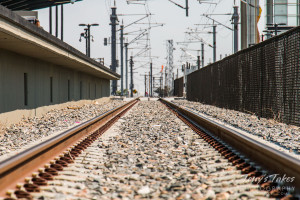Denver’s new airport rail line has experienced severe glitches since opening, including malfunctioning crossing gates and a lightning strike that shut down the entire line for seven hours, among other problems. Transit officials assured the public they were just getting the bugs out of the system. But now, more than six months after it opened, the bugs are still thriving.

The crossing gate problem is so severe that the Federal Transit Administration has threatened to shut down the line until it is corrected. The contractor that built and operates the line tried to claim the lightning strike was an act of God, so the contractor shouldn’t be held responsible, but Regional Transit District (RTD) officials responded that they had pointed out the company’s design was vulnerable to lightning as early as 2013, yet the company did nothing to fix the flaw. Meanwhile, the system continues to perform unreliably.
Now RTD has been forced to admit that two other lines being built by the same company won’t open on time. RTD claims that it saved money by entering into a public-private partnership for the line in what is known as a “design-build-operate” contract. In fact, it saved no money at all, but was merely getting around a bond limit the voters had imposed on the agency. If the private contractor borrows a billion dollars or so and RTD agrees to pay the contractor enough to repay the loan, the debt doesn’t appear on RTD’s books. Taxpayers will still end up paying interest in the loans, which actually makes it more expensive than if RTD had stayed within its debt limit.
Pu![]() blic-private partnerships work great if the private partner is funded out of the user fees collected for the project, such as a toll road or water system. But I resent the way the transit industry has co-opted the term, public-private partnership, because their kind of partnership works differently. Instead of being dependent on fares, the private partner gets a fat check from the agency each month–up to $3.5 million in this case–whether anyone rides the train or not. This means the private partner has little incentive to make sure the system is working. RTD has withheld a portion of the monthly payments until the problems are solved, but eventually the contractor will get all of the money.
blic-private partnerships work great if the private partner is funded out of the user fees collected for the project, such as a toll road or water system. But I resent the way the transit industry has co-opted the term, public-private partnership, because their kind of partnership works differently. Instead of being dependent on fares, the private partner gets a fat check from the agency each month–up to $3.5 million in this case–whether anyone rides the train or not. This means the private partner has little incentive to make sure the system is working. RTD has withheld a portion of the monthly payments until the problems are solved, but eventually the contractor will get all of the money.
The solution isn’t for the agencies to build the lines themselves. The solution is to completely avoid megaprojects that aren’t funded out of user fees. Without the discipline of user fees, everything that’s happening with the A-line should have been expected.
Randal O’Toole directs the Transportation Policy Center at the Independence Institute, a free market think tank in Denver. A version of this piece originally appeared in his blog, The Antiplanner.


